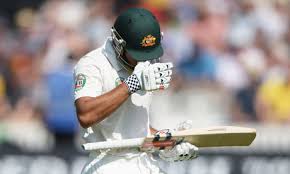Australian cricket is in crisis and it is a situation that gift-wraps several important lessons for any executive team. Of course we are aware of the ‘homeworkgate’ episode with former coach, Mickey Arthur. Against the backdrop of poor results, Arthur had invited the team to submit reports as to where they could improve as both a team and as individuals. From a leadership point of view it made sense: It was a move designed to develop a sense of collective responsibility for the situation that the team found themselves in; it invites ownership for solutions going forward; and it promotes innovative thinking underpinned in the ‘wisdom of many’ approach. There would be many ways one could justify this forward-thinking approach of Arthur and certainly, in the world of leadership, there was nothing radically unusual about adopting such an approach.
 However, it failed miserably and the reason it did so was none other than the team culture at the time. Failure to do the ‘homework’ meant several players being disciplined and the writing was on the wall for Arthur. Former players sneered at Arthur’s approach and with it the attempt to drag the Australian cricket mind-set into the 21st Century. The former players so critical from the grandstands came from teams that had dominated the game or were themselves gifted individuals for whom the game appeared effortless. The current Australian situation had neither of these characteristics – average players in a team where dominating the opposition is foreign. Things had changed: the on looking cricket world knew it; Arthur knew it but the critics seemed stuck in former glories unable to appreciate what was needed.
However, it failed miserably and the reason it did so was none other than the team culture at the time. Failure to do the ‘homework’ meant several players being disciplined and the writing was on the wall for Arthur. Former players sneered at Arthur’s approach and with it the attempt to drag the Australian cricket mind-set into the 21st Century. The former players so critical from the grandstands came from teams that had dominated the game or were themselves gifted individuals for whom the game appeared effortless. The current Australian situation had neither of these characteristics – average players in a team where dominating the opposition is foreign. Things had changed: the on looking cricket world knew it; Arthur knew it but the critics seemed stuck in former glories unable to appreciate what was needed.
So, Arthur gets fired and an ugly lawsuit is playing out between him and his former employees. An ‘old school’ Aussie cricketer, Darren Lehmann is appointed and all is good with Australian cricket as they head into the Ashes series. The first test is a close affair with the Australians pushing their English adversaries to the wire. Suddenly Lehmann’s appointment and ‘good old Aussie’ approach seems a masterstroke. Spirit and team unity repaired and Australian cricket is back. It was a false dawn. The second test revealed the familiar Australian frailties and I suspect that the remaining tests will expose those deficiencies even further. By reverting to Lehmann and going back to ‘things Australian’ the progress of the team has taken one step forward only to go two steps back. New thinking and a new approach are needed. It might not be Arthur to provide that new approach but the continued sneering comments made in the commentary by former players – Australian or not (here think Sir Ian Botham), of Arthur’s approach, still rankle. There was the disparaging reference to ‘KPIs’ with it needing an English commentator to explain exactly what a ‘KPI’ was to Botham. This says more about Botham than it does about Arthur!
What is the learning in all this? Failure to adapt to a changing reality and a reliance on former glories or success, means continued failure. The golden period in Australian cricket is over, period. Harking back to former glories and the way things were done then is irrelevant in a world (and game) that is evolving rapidly. This point is as important in business as it is to the current Australian cricket fiasco. Of course being aware of the culture (in a situation) is important and I am not suggesting that Arthur, given the chance, wouldn’t need to do things differently. However, the comments being made in public by those who should know better reveal the stuck mind-set that dominates Australian cricket, a mind-set unable to come to terms with a changed reality.
I suspect that by the end of the Ashes, Arthur’s homework might not seem such a bad idea after all! Certainly something other than the adrenaline fired approach that lasted all of one test match needs to be considered if that red ‘Fail’ isn’t to become a permanent feature on the Australian report card.
As I said, there are lessons any Executive can take from what we are seeing playing itself out in the Australian cricket team.
“Play ball”.



I agree with you Keith that managers need to adjust to a changing reality. It seems though, that Arthur’s antidote was to involve players opinions while on tour. I think his timing was out to change the culture or responsibilities.
I also think that OZ cricket, will have to take a deep strategic look at their changing environments, like everyone else, to turn their ship around. Having said that, I agree with you that pundits and players from the past showed their ignorance by mocking Arthur’s methods.
The depth of talent in the wings, leadership and skill on the field isn’t available at a competitive level for OZ to win this Ashes series. So their expectations should be lowered and mockery of their fate measured. The English team knows all too well about an empty trough of talent.